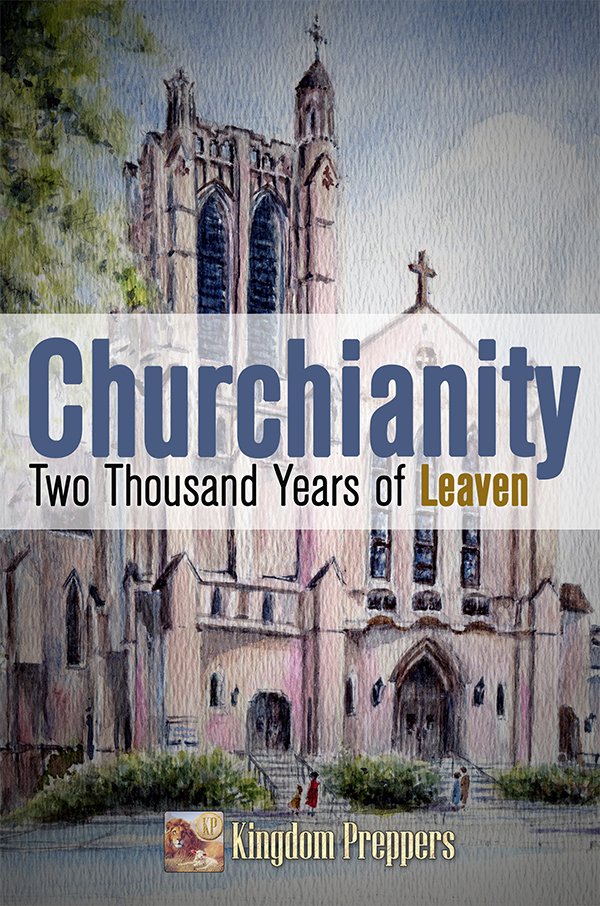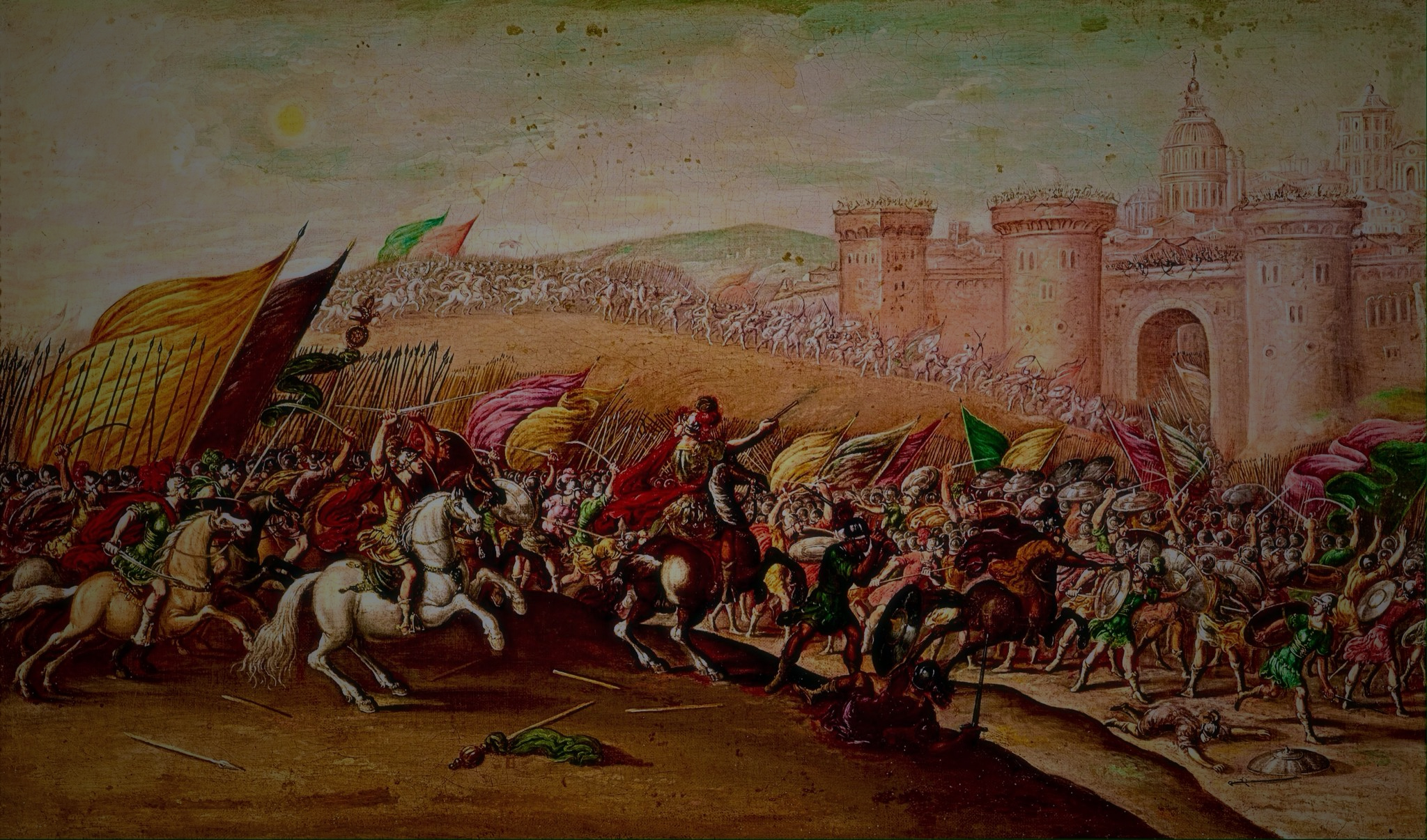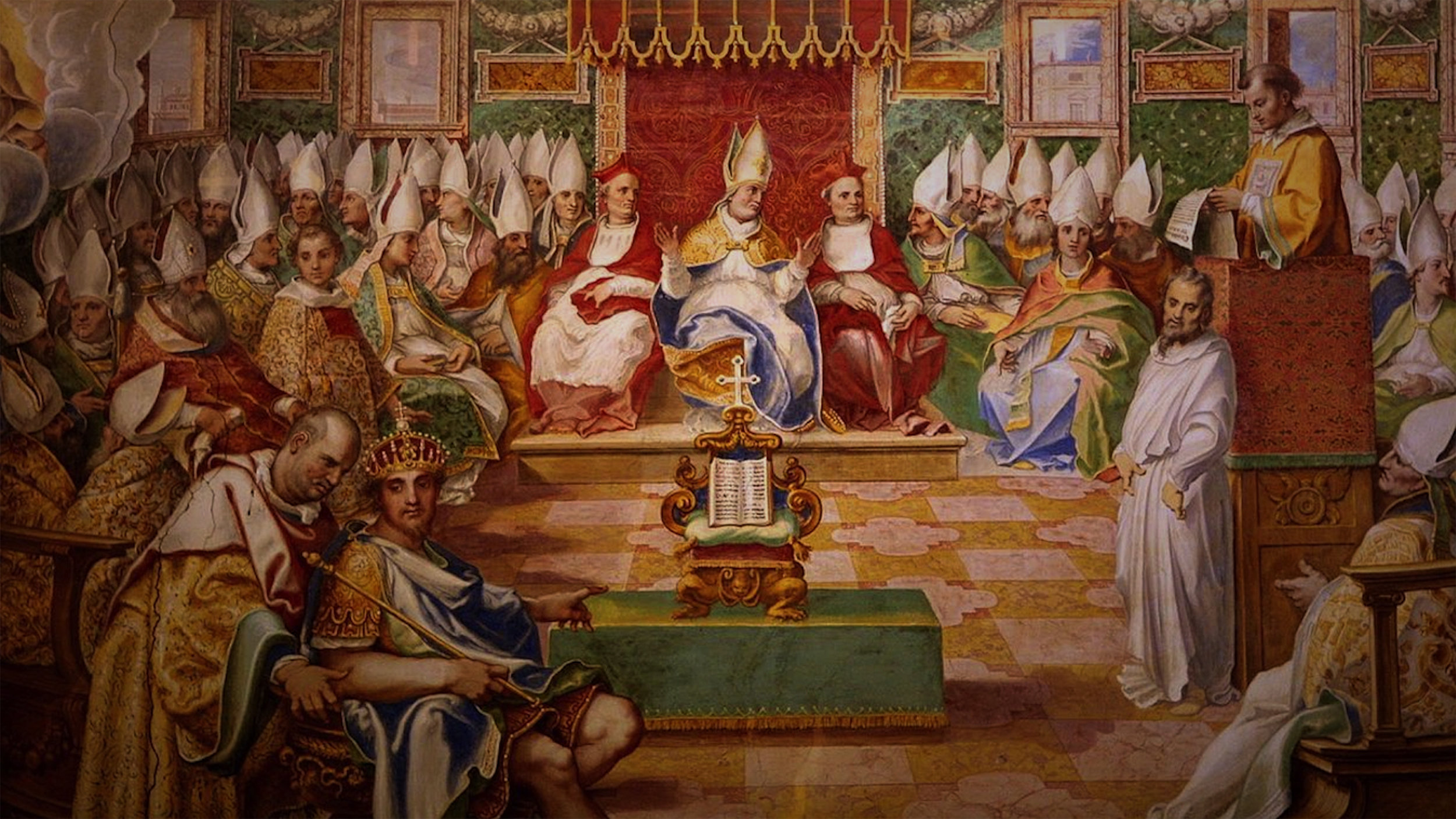

About the Show
In this podcast series—which is a bit more extensive than our other offerings, as it requires a more thorough examination—we will cover the history of the rise and spread of what became Christianity throughout the earth, as well as the establishment and growth of the church system, both of which are corruptions of the original Hebrew culture that is the focus of the Scriptures.
Related Items
Download the Transcripts

Churchianity Transcript Collection
All transcripts of the podcast collected in one place. Click the button below to download the PDF for free!
Final Episode:
Capitalism is the final de facto religion to emerge on the world stage, which it quickly dominates. Meanwhile, Christianity, which is given two thousand years to flourish—as seen in key Scriptural events and prophecies—is integral to the system of the two beasts of Revelation 13. The identity of that second beast is also revealed, allowing us to mark our place on the prophetic timeline.
All Episodes Below!
Continue scrolling to view or click a link to jump to a section.
Over 15 hours of content!
Testimonial
Hello brother Kingdom Prepper,
I just wanted to send a brief message of thanks to you for this blessed and amazing series. I have listened to and read several episodes and watched the excerpts on Youtube and they have been very enjoyable and very informative.
I am just now coming into the true knowledge of our identity and this series is very helpful and I think it can be helpful not only for Hebrews but Gentiles too (at least get them asking questions).
I truly appreciate the more indepth study of Churchianity and that whole breakdown that is truly needed to help us realize and understand its true history and the strong, deadly grip that it has on us as Hebrews. That's why I rejected this truth so long. But the Most High gently and faithfully kept leading me until I humbly submitted to Him.
As I began to learn some things, I never could put the pieces together when I heard that our ancestors ran into Jerusalem to escape Roman persecution. We were taught that it was white Christians who were persecuted and who had endured the Spanish Inquisition. Anyway, please know that your ministry is a blessing. I can't remember how I found it but I am thankful and grateful to Abba Yah that I have. I had been praying for increased wisdom and knowledge on all of this, and for understanding and discernment in weeding through all of the information out there and the "teachers/morehs."
It has been a blessing to me, and as I share with others, I pray that they are blessed as well. May the Father continue to keep you and richly bless you and this ministry, and may He do so abundantly. Thank you.
—Rochelle H.


The prophesied rise of the Romans comes on the heels of a vanquished Greek Empire and forces the overthrow of the Hasmonean Dynasty, which ruled Judea for a hundred years. With the arrival of the promised Messiah, the nation of Judah receives, and largely rejects, the Messianic message, leading to a shift in the movement and the creation of the leavened Christian religion.
Emperor Nero rises to power, and, needing someone to blame for the suffering caused by his excesses, persecution of Christians begins under his reign. This leads to Christian apologetics and martyrdom, as well as a new policy dictating how and when Christians should be punished for their obstinacy. Thus, the martyr becomes a hero and model of Christian perfection, and someone to be venerated as a saint.


While the ancient catholic church tries to achieve universal appeal, the rival Gnostics challenge its authority. This conflict presses the church to complete its establishment of orthodoxy, which it struggles to maintain in the form of creeds, Scripture cannon, and apostolic succession. This allows the church to cement its hold on the Christian message, and denounce as heretics all challengers to its “apostolic” authority.
None were more instrumental to the development of Christian theology and doctrine than the church fathers; men who, in the early centuries of the movement, rose to prominence via their written expositions of the Christian faith. Modern Christianity exists on the foundation that the church fathers built. And while they gave the Christian movement its doctrinal legs, those doctrines pushed Christianity farther from both Torah and Yeshua’s message.
A succession of intolerant emperors inflicts severe punishment on obstinate Christians who refuse to serve the Roman deities, culminating in the harshest of all persecutions of the first four centuries—that under Diocletian. The empire itself, meanwhile, faces near collapse under the weight of economic crises, internal political conflicts, civil war, and invasion from confederate barbarians pouring in from beyond the Rhine and the Danube.


Constantine defeats his rival Maxentius for control of Italy, leaving him with one final rival blocking the way to complete control of the Roman Empire. The battle of Chrysopolis decides the fate of the realm, establishing Constantine as sole ruler. Constantine thereafter cements his place in history by effectively shaping the course of Christianity through edicts, sanctions, and other policies, and by favoring the movement with many gifts.
Theodosius attempts to stamp out the remnants of the Arian movement from his realm, but not before it spreads to Rome’s fiercest enemies. Paganism, on the other hand, is outlawed, and eradicated from the realm, leading to the further rise of the Christian movement. Bishop Ambrose of Milan exercises his new authority while building the church into a political and legal institution, adding to its ecclesiastical strength.
Among the most celebrated of all the historical Catholic figures, Augustine, more than most, shaped the theology of the church like a master sculptor, influencing many generations that came after him. The doctrines he spearheaded arose from various controversies that plagued North Africa during his time as bishop, but those doctrines persist to this day, even reaching beyond the church, into the very halls of government.


Christianity’s development beyond the borders of the Roman Empire was also significant, showing the thorough spread of the spiritual leaven. East, west, and even north, to the lands of Persia, India, Mesopotamia, and the barbarian regions beyond the Rhine and Danube, one form of Christianity or another took root. And, finally, Christian barbarians, of the Arian persuasion, having amassed great numbers and strength, invaded the empire.
Following the reign of Constantine, who lavished the church with gifts and property, rich and powerful church members were seen as the main beneficiaries of Yah’s blessings, to the disgust of many among the lowly laity. And with the end of persecutions and martyrdom—which was seen as a means of attaining perfection and sainthood—the laity looked to another path to achieving these goals: monasticism.
With monasticism firmly established, the church sets about converting the pagan territories of the Picts and Scots in Scotland, the Angles and Saxons in England and other tribes in western Europe. Also, the barbarian Franks rise to fulfill a key prophecy. Meanwhile, the three horns that are plucked up in Daniel chapter 7 are made known, that being three barbarian tribes which successfully establish kingdoms that are eventually uprooted.
Justinian comes to power, thanks to his uncle, Emperor Justin, and a law has to be changed in order for him to wed a forbidden woman. Opulence fills Justinian’s court, and he is faced with early revolt, but surviving this, he overhauls the entire Roman law code—which has since been adopted by much of the world. Finally, he suffers disasters that devastate his realm and drains the Treasury.
Emperor Justinian becomes a law unto himself and declares his word to be sacred. By making himself equal with the Most High, a fierce judgment is unleashed to coincide with the legal primacy of the papacy in Rome. Both Justinian and his realm are met with punishment when a severe plague devastates Constantinople and its surroundings. Strange weather patterns and anomalies in the sky also mark the judgment.
During Justinian’s Gothic War, a future pope is born, Gregory the Great, who would lay the foundation for the Papal States as well as the civil authority to govern both them and western Europe. Gregory, through his mission of monks sent abroad, was also instrumental in establishing Christian traditions that are infused with barbarian heathenism, such as Halloween, Easter, and Christmas, to which he turned a blind eye.
Muhammad, born in Mecca to a low clan, marries into wealth and claims to receive visions that would form the foundation for Islam. Forced to emigrate from Mecca, he finds a strong following in Medina, and after unifying warring tribes in the cause of Islam, the united Arab front storms into the Byzantine territories of the ancient Near East, which they would dominate to the present day.
With the conquest of much of the eastern empire, the spread of Muslim domination is halted in 733 by the Franks. The peoples of the conquered lands learn to live under Muslim rule and many adopt Islam. After a century of conquering, however, the successors of the Muslim elite rest on their laurels and watch as their empire is fragmented, thwarting all hopes for a unified Islamic state.
A line of do-nothing-kings from the Merovingian dynasty rule the Franks, which forces the creation of mayors of the palace, an office of chief household officials. In time, these mayors seize more and more control, and Pepin III is finally crowned king, beginning the new Carolingian dynasty. Charles Martel (“the Hammer”) would follow, and Charles the Great, better known as Charlemagne, would achieve the greatest height among them.
The church experiences a low ebb of morality while enduring the external threat of yet other invasions, this time by Magyars from the east and Norsemen from the north. Vikings and Danes plunder the west and establish kingdoms in what would become powerful European states, while the church and the papacy suffer from widespread corruption. The practice of simony plagues the clergy, and feudalism sweeps through the empire.
As the investiture controversy rages on, Pope Gregory VII and King Henry IV face off, forcing one to yield to the other. While the eastern empire is being overrun by Seljuk Turks, Gregory’s successor, Urban II, assumes the papal throne and, preaching at the Council of Clermont, initiates the First Crusade, which draws 60,000—peasants and nobles alike—to the cause of vanquishing the Arab and Turkish infidels.
Jerusalem is transformed into a Christian crusader state following the First Crusade. Several principalities are carved out of the Muslim empire as well, but before long, a Second and Third Crusade are fought, shifting the balance in favor of the Muslims, who retake the lauded city. Five crusades would follow before the crusading fervor expired, but the wars would weaken the Byzantine Empire, leading to its fall.


Medieval European society reaches unprecedented heights as peace reigns, allowing for improved trade, urban expansion, wider missionary efforts, intellectual and artistic pursuits, and more. The papacy also benefits from the period of development, as the most powerful pope in Christian history, Innocent III, wields his authority over kings and nations alike. But dissent would be fomented against the papacy following the transfer of the papal residence to Avignon.
With a string of venalities and controversies surrounding the papacy, the hearts of men began to turn against the office and the ancient church structure. At the forefront of the pre-Reformation movement were John Wycliffe and John Huss. Wycliffe’s writings and teachings would prove highly influential, leading to a popular following comprised of the Lollards. And when that influence reached Bohemia, John Huss took it even farther.
While the Great Schism of the papacy played out following the Avignon period, the glories and excesses of the Renaissance were being realized. Painters, sculptors, artists, and poets—by blending paganism and Christianity—sought to capture the essence of Greek and Roman splendor as expressed through art and literature. Amidst the creative explosion, the popes sought to elevate Rome to new heights and restore her former glory.
After gaining maritime knowledge, the Portuguese embark on explorations that lead to the discovery of islands that become their new outposts. In search of gold, they reach the west African coast and instead create a new slave market by enslaving and trading descendants of ancient Israelites. Meanwhile, Spain finances Columbus’s first voyage to the New World—mistaken for the East Indies—which touches off the European age of “discovery.”
Martin Luther lived through a series of pivotal historic movements, and he charted a course that saw him leave his own indelible and prophetic mark, that being the Protestant Reformation, which he is considered to have fathered. Abhorred by the selling of indulgences, Martin Luther begins his attack on the church with a series of influential writings, which leads to his excommunication. But the Reformation could not be stopped.
Due to his outlaw status, Martin Luther is forced to remain in the shadows of the Reformation while others assume leadership positions in his church, which quickly develops into an institution. Meanwhile, Ulrich Zwingli, a prominent Swiss reformer laboring apart from Luther, spearheads an important reform movement in the Swiss Confederacy that gives rise to radical Protestants who create yet another denomination: the Anabaptists.
Intent on passing through Geneva after a one-night stay, John Calvin is asked to join the reform movement there. His efforts and leadership in effect resulted in a third branch of Protestantism: Reformed Christianity. In the late 1550s, a militant version of this movement spreads beyond Geneva and draws a large number of converts. The denomination reached its height in Scotland and migrated to America after engulfing Europe.
While European nations are rejecting Catholicism far and wide on the grounds of theological disagreements, England finds fault with the mother church for political reasons. British succession to the throne draws the king of England into conflict with the papacy, forcing Henry VIII to split with the dominant religion and stand at the head of yet another branch of it. But opposition from Puritans further shapes the denomination.
European nations embark on an empire-building spree by founding new colonies in the new world, chief among them being the thirteen colonies established by Great Britain, which began with Virginia. Failed attempts at making the investment work eventually lead to the institution of slavery, which sees the first Israelites shipped to Jamestown in August of 1619. Millions more follow over time, fulfilling specific Scriptural curses and prophecies.
The harlot daughters of the mother church begin to spread across the American colonies and carve out individual paths to eventual separation from the old world. Slavery, meanwhile, thrives as a result of increased trade created in a new market system, which, with the establishment of the United States, gives rise to capitalism, a new and far-reaching religion.
As Christian denominations spread throughout the colonies, sans the support or protection of any central government, they each found a way to gain a foothold while learning to tolerate one another. Within this new environment, and surrounded by unbelievers as they were, a series of revivals took place that led to two Great Awakenings. This in turn led to the birth of several new harlot daughters of Mystery Babylon.
Capitalism is the final de facto religion to emerge on the world stage, which it quickly dominates. Meanwhile, Christianity, which is given two thousand years to flourish—as seen in key Scriptural events and prophecies—is integral to the system of the two beasts of Revelation 13. The identity of that second beast is also revealed, allowing us to mark our place on the prophetic timeline.









































